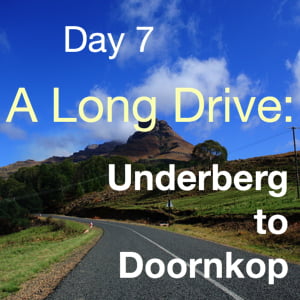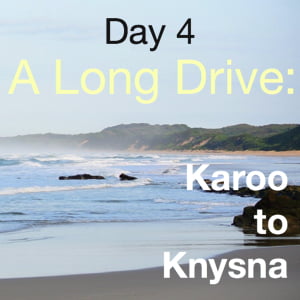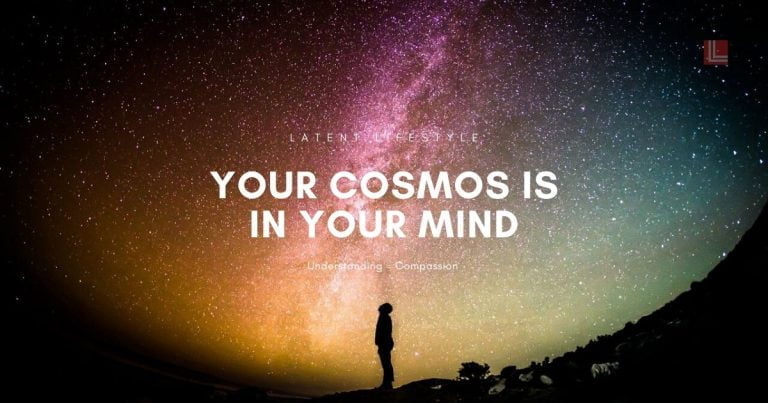I am an Existentialist!
I am an Existentialist!
What a strange statement to make!
Who really cares about what I am?
I care, and I am interested to know what you are!
We all have outlooks in life. Some are tinted by a religious belief, others have thick blinkers on to avoid looking around. If anything, being a something could be prohibitive some might say. But as a means of Acting Anyway, the best way to move forward is to have a starting position.
What is Existentialism?
Any good article should start with a definition. So here we go…
Existentialism is a philosophy that emphasizes individual existence, freedom and choice. It is the view that humans define their own meaning in life, and try to make rational decisions despite existing in an irrational universe.
See it’s not that hard! A philosophy that asserts that we all have a choice and that we must each find meaning for ourselves.
Before I continue, I must insert here that this original article became so long that I needed to truncate it quite a bit, but I had that much I have started to write a book regarding Existentialism which I hope to have finished soon and should be found in the Books I wrote section.
Now there is plenty you can read on this topic and a number of views that will have you scratching your head in confusion as to why I would choose this position at all. I think it best descibes my outlook and it fits very well with my overall view of the world.
It is noted that Søren Kierkegaard and Friedrich Nietzsche are the main originators of this form of thinking in the 19th century, but they didn’t coin the expression. From the 1940’s onwards we really find such philosophers as Jean-Paul Sarte and Albert Camus as those who highlight the themes of Existentialism. And lets not forget another French philosopher, Maurice Merleau-Ponty (for his name is similar to mine), who was highly influential in the Existential movement of that time.
“The central proposition of Existentialism is that Existence precedes Essence…” (Wikipedia) The interpretation being, that you and I are born first and that we then “create” an essence during our lives.
That leads us to the idea that we then are the creators of our essence and that it is not our environment or predisposed genes that harbour different forms of essence. It would seem almost pointless at the point of birth to say of a child that they are going to be a writer because their father or mother was one.
Equally, it is unlikely that a murderer will have a child that will also murder based on the birth. It is a building of the essence that will make a person who they are, and that is through a series of choices each individual makes.
It is without doubt that we cannot rule out that the environment does contribute to a person creating their essence, but this is only through the available options a person perceives within that environment. (This needs to be discussed at a later date and outwith the scope of an introduction to Existentialism)
“God is Dead!” Pardon?
Existentialism has often been associated with the idea that “God is Dead”, as found in one of the plays Nietzsche wrote. This really was taken out of context as he was mainly referring to the idea that God is a creation of the mind and that those who believe in God change, and so they also manipulate the idea of God, bending their beliefs to current trends in society.
Nietzsche could not see a way that a God that changes for each person would be a reliable source for morality and hence, morality should be decided upon by people and not arbitrarily by a God of the mind.
Today, this position seems even more relevant as society struggles to find it’s way in what is acceptable and what is not. To see how our thoughts are changing and to witness the rush to choose Science as a new religion to guide and protect us is precisely what Nietzsche was arguing against.
Why did you choose this philosophy?
Since I was able to ask questions of religion, I have always want to search for the meaning in it. Not everyone feels this compulsion to understand what they do and why they do it, and understandably so, for it is a luxury that I have allowed myself, but to not know was worse.
I could not accept that a faith I learned from my family would be the ultimate belief in a world full of differing thought and interpretation. If there was a case for religious belief, then which, if any were correct?
I began by studying Theology to grasp the Abrahamic roots of the three major world religions, then went on to study Eastern Religions and their interpretations of the world and our place in it.
The study of philosophy expanded my horizons further and so was born a deeper desire to “understand”. Existentialism explains that we are born into an absurd world. One that it is impossible to make any sense of. Yet, we try to rationalise and reason that there is order and that the absurd can be explained.
Understanding that this journey is one which an individual must make is equally interesting. We are all observers of the “Others” in our view. I cannot understand your thoughts and feelings because you exist as an essence seperate to me, but I can observe and I can question what I see.
The idea that we create for ourselves our own model of reality, only serves to reinforce my belief that Existentialism is a good starting place to understanding my place in the world.
It is common knowledge that the brain “creates” it’s own version of reality. The brain takes all the data it receives from the senses of the body and forms a 3d model of reality inside the mind. One which needs constant adjusting and updating as we continue through our day.
The Forest
For example, a forest is but a large group of trees that co-exist together. There is nothing special about this forest. Everyday, you leave your little home in the forest and go to pick the fruits, berries, acorns and mushrooms and you return home every night. Some days are warm, and others are cold and blustery. It is what you call home.
After a number of months, a model of your reality might be that the forest has tall trees, and that there are areas you can find food in it. Occasionally you see small deer and hear the occasion bird, feel the wind and get soaked by the rain and, for what its worth you are content with your lot in life.
You invite a friend over for a cup of acorn tea, when they ask you, “How can you live out here all alone in a forest?”
You reply, “It is beautiful, away from all the hustle and bustle and life is very calm and peaceful here.”
Your friend responds by saying, “Oh I couldn’t live here, what about the ghosts?”
Your response at that moment is, “What, ghosts?”
Your version of reality has just been updated with a piece of information it previously didn’t have, even if you choose not to believe, there is now a new piece of knowledge that your brain needs to consider and your model of reality would need to be updated.
That night, as you read a book about herbs you can find near streams and rivers, you hear the wind blowing outside and you hear the creak from the trees moving against one another. You have heard these sounds a thousand times, but this time those creaks sound louder. The wind whistles under the door and gives you a chill up your neck.
Your senses go into over drive as you take in this data, as you have done before, but this time a new piece of information is sticking in your model of reality, “What if there are ghosts?”
A basic tenant of Existentialism is that existence precedes essence and as we can see from the over simplified example above, you existed first and your essence is created after. So even, from a biological stance, we can see existence precedes our understanding of the world around us.
Oh the Anxiety of it all!
Once we realise that, an anxiety is shortly to follow. That we, you and I, are but individual essences, created by ourselves and acting out our own model of reality.
The anxiety felt initially in Existentialism is that of the unknown or the feeling of unlimited freedom to do anything! That this is it! An example might be standing on a cliff edge. You can do anything at that moment. You can see the vast drop below, the wind in your hair, the fear and the excitement all wrapped up in a single moment.
You understand at that moment you are totally free and it is your choice to act. You know that stepping off has consequences and you know stepping back is your own choice. But in that instant, fearful anxious moment, for just a brief second, you feel the anxiety of having a completely free choice!
The anxiety of realising that the model of reality you hold in your own mind can be altered, changed and bent to whatever you allow it to be, is an anxiety that is truly overwhelming at first.
Don’t be Absurd!
Of course the world looks rational as we move into a scientific era unprecedented before now. We understand more about how the world and universe work and yet we are no closer to understanding how to live life with purpose. In an age where we should be happier and healthier and enjoy life, we are increasingly more angry, bitter and despondent than we have ever been.
Imagine for an instant those people who caused the stock market crash causing a global economic crisis, or that the “rich get richer” with every transaction they make, or even the impossibly ludicrous idea that someone would sacrifice their life for a belief and in so doing destroy other lives. The world is truly absurd.
Some work hard all their lives and lose it all to an illness, others who maim and murder live in housed security and are fed and watered and kept warm. Animals seem to exist in places to support their own environment and yet maim and kill each other too. That the only plausible way for us to exist is for billions of other living organisms to die!
The more you look, the more absurd reality becomes and Existentialism seems to highlight that for me. Even though I am looking, I see only what I choose to believe I want to see.
Nothingness is the Reality, then Death!
If I were to stop writing after this heading you would indeed reach the same conclusions as Nihilism which resorts to a childish view that there is nothing worth doing and all should really be given up in favour of the useless result of all life. That there is nothing for us.
No meaning for us to be here, no future to live for and no magical afterlife in which to rest our beliefs in. There is just the certainty of death.
What a poor, pitiful way to look at the life we have.
Nothing could be further from the truth in my opinion. Of course, I could stop the discussion here and we could all end up depressed with our lot in life. We may even realise that if that is the final understanding of life, we should probably do whatever we want and, regardless of others, continue to enjoy what we can gain for now.
Nothingness is a reality, death is a reality, but it is not the end that we focus on in the present. For to do so would mean we would live in the future and miss the relative reality of the present!
Alienation towards others
Before starting this long account of Existentialism, I was clear of a few ideas. Ones that had occurred to me many years before and yet I had not realised I could align them to the ideas of Existentialism. Again see Books I wrote to see another book I am writing relating to the interconnectivity of life.
The one thought, that I existed, as an “essence”, alienated from others. Alone. That as hard as I try to understand the situation of others I can only do so through my own model of reality. I cannot, “walk in another’s shoes” because they can only experience their reality for themselves.
As this dawns on the Existentialist that they are alone, and with nothing to look forward to but death, what would be the point of life except to die? This again is Nihilism and a dangerous path to go down. The wrong way to look at life in my humble opinion.
Understanding Existentialism
Our purpose lies within us. It is the understanding that we are not the product of our environments, or that of our parents. Our education and our peers, although all influential, only lay a platform of choice that is available to us.
Herein lies the jewel of Existentialism and the reason I think a philosophy worth developing. I exist, and I have freedom of choice to choose how I exist. I can choose to see the world through rose coloured lenses that make me ignore the pain and hurt of the world as I whistle my way through it.
I can choose to despair at the world and the futility of all those who live in it. Their great ambitions laid out for everyone to criticise and discuss. I can choose to be angry at the world for not giving me what everyone else has!
The Jewel is the freedom of choice over your model of reality. Not the ability to immediately change your job into something you consider amazing. Not to move out of the tower block, parents home or trailer you may stay in. Not to give up all your responsibilities. It is the power and the freedom of choice over how you view those situations.
There is so much more to be said on Existentialism that I will have to complete the book and even then I am not sure I will have achieved my aim of offering a reasonable alternative to how the world can be seen to be a better place in which we – I live in.
If you have been interested in some of the things you have read or want to discuss some of the ideas further, Contact me. I am always pleased to read what others have to say about Existentialism.
Maurice





